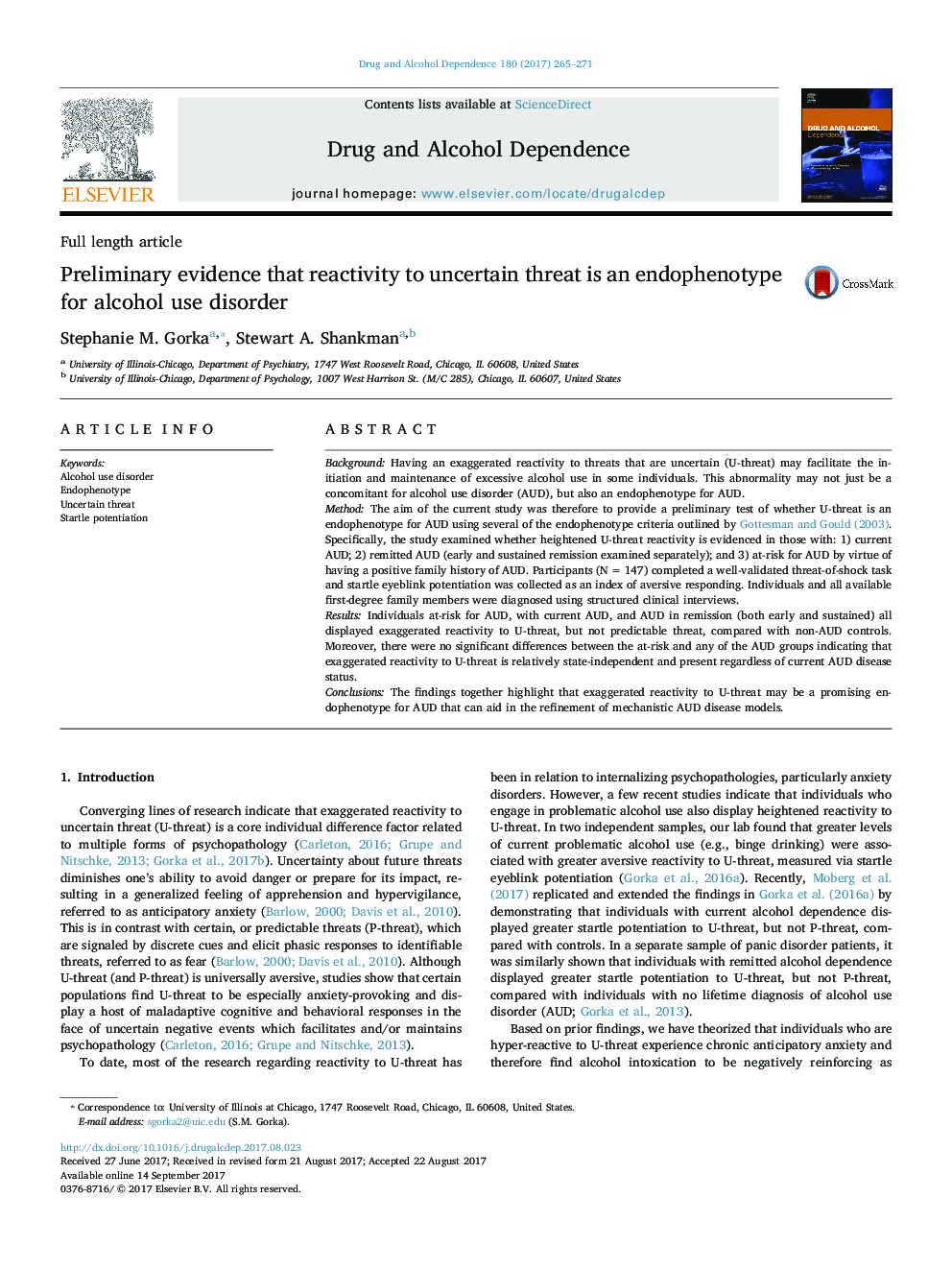| Article ID | Journal | Published Year | Pages | File Type |
|---|---|---|---|---|
| 5119864 | Drug and Alcohol Dependence | 2017 | 7 Pages |
â¢Exaggerated reactivity to uncertain threat may be an endophenotype for alcohol use disorder (AUD).â¢This was tested by comparing groups of individuals at various stages of AUD.â¢The at-risk, current and remitted AUD groups all displayed exaggerated reactivity.â¢Exaggerated reactivity to uncertain threat is present regardless of AUD status.â¢Reactivity to uncertain threat is a promising endophenotype for AUD.
BackgroundHaving an exaggerated reactivity to threats that are uncertain (U-threat) may facilitate the initiation and maintenance of excessive alcohol use in some individuals. This abnormality may not just be a concomitant for alcohol use disorder (AUD), but also an endophenotype for AUD.MethodThe aim of the current study was therefore to provide a preliminary test of whether U-threat is an endophenotype for AUD using several of the endophenotype criteria outlined by Gottesman and Gould (2003). Specifically, the study examined whether heightened U-threat reactivity is evidenced in those with: 1) current AUD; 2) remitted AUD (early and sustained remission examined separately); and 3) at-risk for AUD by virtue of having a positive family history of AUD. Participants (Nâ=â147) completed a well-validated threat-of-shock task and startle eyeblink potentiation was collected as an index of aversive responding. Individuals and all available first-degree family members were diagnosed using structured clinical interviews.ResultsIndividuals at-risk for AUD, with current AUD, and AUD in remission (both early and sustained) all displayed exaggerated reactivity to U-threat, but not predictable threat, compared with non-AUD controls. Moreover, there were no significant differences between the at-risk and any of the AUD groups indicating that exaggerated reactivity to U-threat is relatively state-independent and present regardless of current AUD disease status.ConclusionsThe findings together highlight that exaggerated reactivity to U-threat may be a promising endophenotype for AUD that can aid in the refinement of mechanistic AUD disease models.
